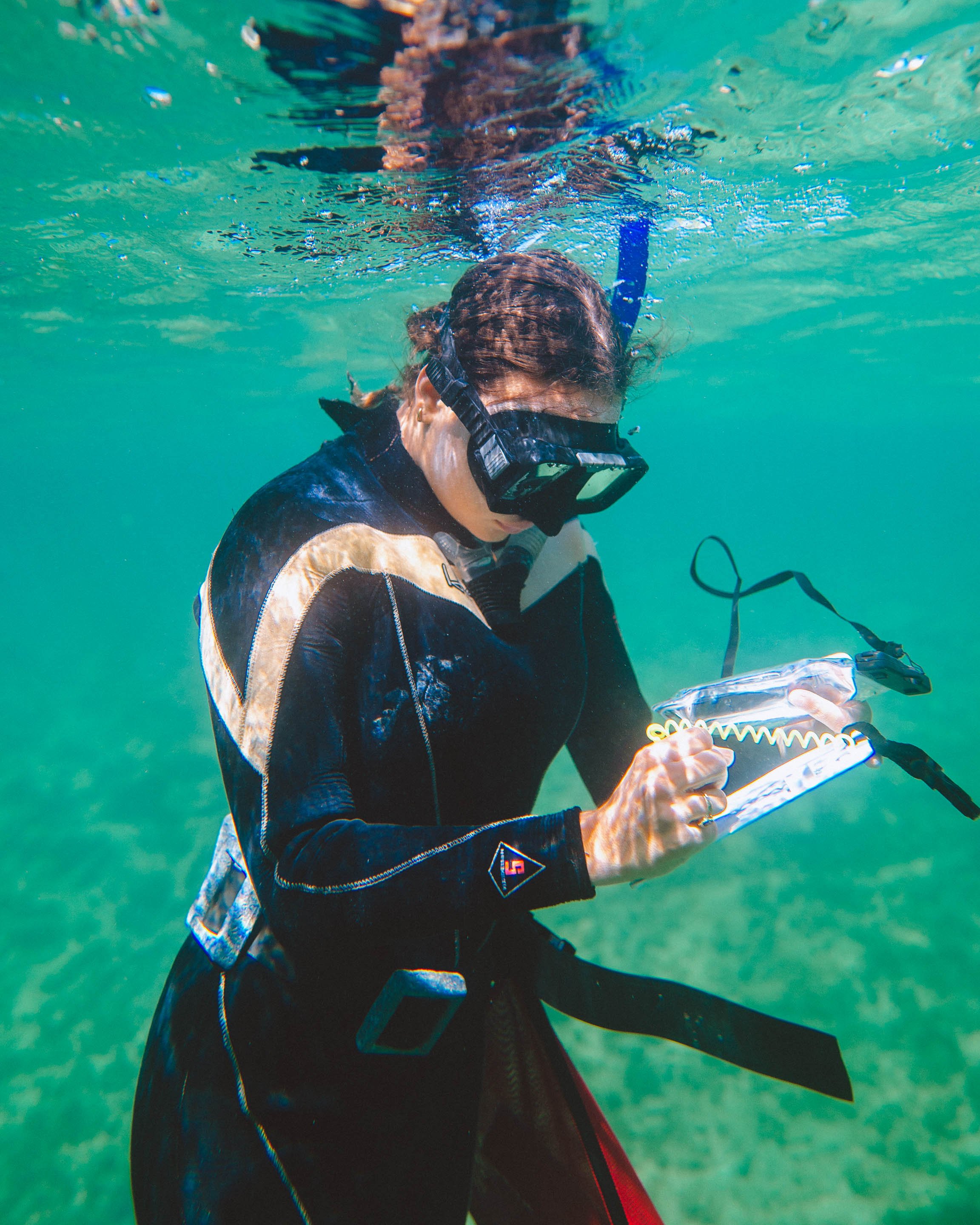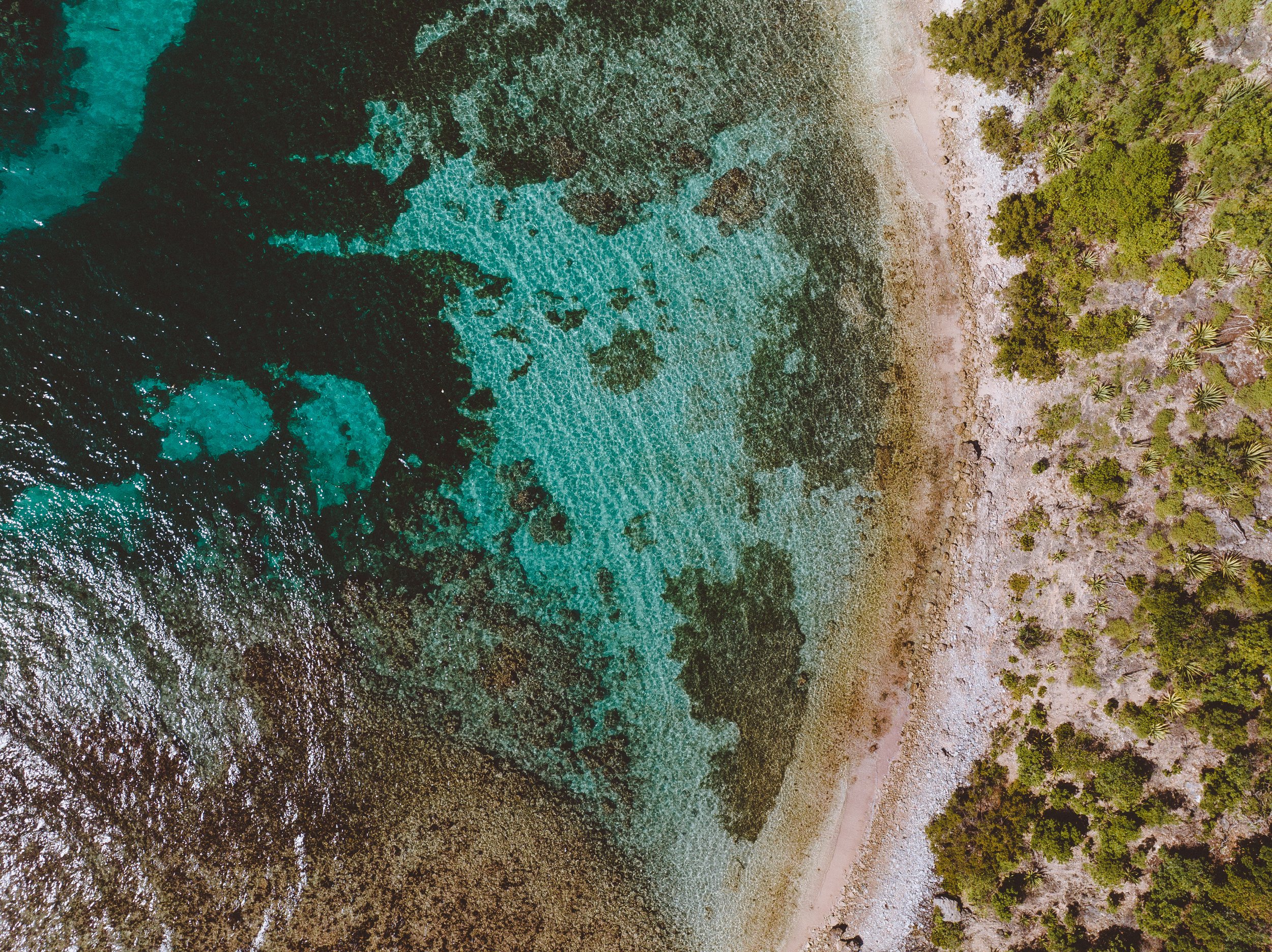
Science & Monitoring
Ecological assessments
Before beginning work in any given area, the EMC conducts in-depth ecological assessments. The results of these assessments can be used to inform ecological restoration efforts as well as the management of ecological resources. Ecological surveys span coral reef, mangrove, and seagrass ecosystems and utilize a combination of belt transects, quadrants, and point-intercept methodologies to quantify benthic, fish, and invertebrate communities.
Restoration monitoring
Long-term monitoring of ecological restoration is a deficit in the global restoration community. The EMC science team is monitoring the outcomes of their coral restoration initiatives through a combination of techniques, including photomosaics - where thousands of photographs are collected and stitched together to make 3D models of the seafloor and real-time surveys of fish communities, benthic health, and coral outplant survivorship. As we are only in our first year of coral outplanting, please stay tuned as we compile and present data on our findings.
Water quality testing
Water quality plays a critical role in driving the health of marine organisms and ecosystems. Human activities can affect water quality in several ways, such as:
Nutrient runoff from farms, gardens, and golf courses using fertilisers.
Sewage from coastal homes with old septic systems or boats dumping wastewater.
Pollutants from cleaning products, paints, and plastics.
Industrial discharges from factories releasing harmful chemicals.
Oil spills that degrade water quality and harm marine life.
Deforestation and unsustainable development practices which increase erosion and sedimentation in water bodies.
Land and marine litter, especially plastics, polluting water bodies.
EMC conducts monthly water quality testing to better understand the impacts of human activities and other conditions. Using this data, we can promote better practices at our restoration sites and surrounding areas, enhance the region's scientific understanding, improve environmental monitoring, and support better resource management.
In 2024, the EMC science team had the honour of hosting Dr. Amy Apprill from Woods Hole Oceanographic Institution (WHOI) for a collaborative research effort to explore the microbiology of Antigua’s coastal waters and their potential impact on coral health. Joined by representatives from Antigua’s National Parks Authority, water samples were collected from 25 sites along the eastern and southern coasts, varying in human impact exposure. Using EMC’s YSI probe, physical water quality parameters such as pH and dissolved oxygen were tested in real time. Filtered microbes and small vials were frozen and sent to the US for further analysis of the microbial community and nutrient content. Additionally, samples from healthy and diseased elkhorn corals were collected at six sites, which were also transported to Dr. Apprill’s lab for microbial analysis. We look forward to analysing our results once the lab work is completed in the coming months.
Herbivore restoration research
With coral reefs globally in decline and facing increasing anthropogenic threats, effective restoration strategies are critically sought after. In the Caribbean, where coral reefs have been affected by disease outbreaks and fishing pressure, leading to shifts from coral to algal dominance, herbivorous invertebrates have emerged as a promising restoration tool. However, integrating these strategies into restoration programs requires a deeper understanding of recent developments in techniques and further opportunities for improvement. The EMC is actively contributing to this field by developing a review paper on the restoration process of herbivore species in collaboration with other practitioners and researchers from across the region. The paper will highlight gaps in research, technology and knowledge associated with re-establishing these species into the wild. This effort underscores the importance of ongoing research and innovation to incorporate diversity in coral restoration practices.
Shark tagging
The EMC team received a grant from YachtAidGlobal to launch a shark research initiative in Antigua, Barbuda, and neighbouring islands in collaboration with Caribbean conservationist Tadzio Bervouets. This initiative is pivotal for studying shark behaviour, including their preferred habitats, mating behaviours, migration routes, and interactions with other species. The initial grant funded a multi-day training and a tagging trip where satellite telemetry tags were deployed, marking the largest satellite telemetry study in the Eastern Caribbean to date. The team hopes to continue this initiative on ongoing tagging expeditions, and looks forward to publishing their results once data is transmitted and analysed.
Whale monitoring
Antigua and Barbuda serve as migratory routes for whales traveling between the colder northern waters and the Caribbean Sea to breed and give birth. However, there are significant gaps in our understanding of their movements, behavior, and overall health. Without comprehensive data, effectively managing and conserving these ecosystems becomes challenging. EMC aims to identify critical whale habitats, investigate environmental factors influencing their movements, and assess human interactions. The insights gained will enhance conservation efforts and resource management while also creating opportunities for community engagement and equitable economic benefits.
Advocating for whale conservation in Antigua & Barbuda
Marine ecosystems in the Caribbean are inextricably linked. Marine megafauna (species such as sharks, whales, and large fish) found in deep oceans stimulate zooplankton productivity, one of the primary sources of food for reef building corals, demonstrating one of the many ties between deep oceans and coastal ecosystems. The waters surrounding Antigua and Barbuda provide migration pathways and habitats for a variety of whales, which help maintain healthy seas upon which our twin island states are dependent for food and economic prosperity. With the mission to enhance the resilience and stewardship of marine ecosystems, EMC supports the decision of the Antiguan government to withdraw the resolution of August 2024 calling for the resumption of commercial whaling. We support the government in actions to reduce harm against marine wildlife and advocate for sustainable practices and economies which benefit communities while safeguarding our environment.







